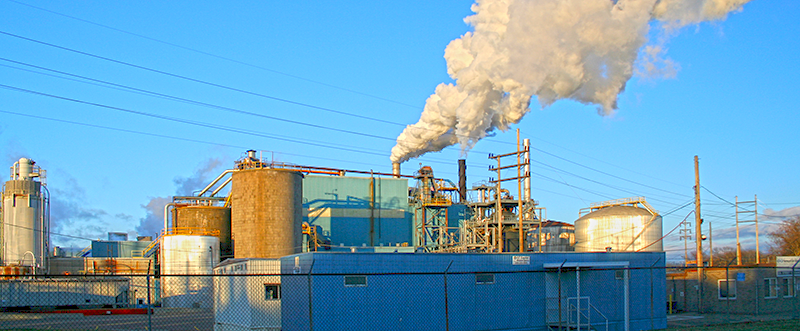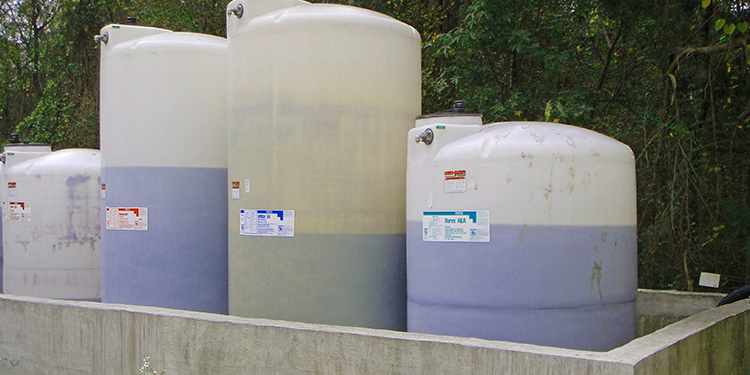TRI Reporting Not Triggered? Here's Why You Should Still Document It
If your facility has ever submitted Toxic Release Inventory (TRI) reports, you’re officially “in the system.” That means your name—and your data—is now publicly available and trackable by regulators, environmental groups, and the general public. But what happens in the years when you don’t have to report?
At RMA, we often get asked, “Do I need to explain why I didn’t do a TRI report this year?” The short answer? If you’ve reported in the past, you should definitely report this year, even if it's not triggered. Skipping a year without clarification can create what’s known as a “gap year,” and while it might seem harmless, these gaps can send the wrong message.
Let’s break down what TRI gap years are, why they matter, and how you can avoid letting your silence speak louder than it should. And if you want help making sure your reporting is airtight, contact us here.
What Is a TRI Reporting "Gap Year"?
On July 1st, of each year, facilities meeting certain thresholds are required to report a TRI Report. A TRI "gap year" occurs when a facility that has reported in the past skips a year without providing a clear reason. If your facility doesn’t submit a TRI report, it doesn’t necessarily go unnoticed. In fact, it often raises eyebrows and creates confusion with regulatory agencies—something you definitely don't want to deal with.
Once your facility enters the TRI system, there's an expectation of consistency. Whether your chemical usage changed, production dropped, or thresholds weren’t met—those details matter. Without a formal explanation, a skipped year can look like a mistake... or worse, like you're hiding something.

Why TRI Gap Years Are a Problem
Gap years can trigger scrutiny from all directions. Regulators might flag your facility for follow‑up. Environmental watchdogs may question your transparency. And potential business partners or investors who do their due diligence could see the inconsistency and worry about compliance.
We’ve seen firsthand how easily a gap can lead to unnecessary audits, delays in permitting, or reputational damage.
Here’s why it matters:
-
Regulatory attention: EPA systems track your past filings. Gaps are easy to spot.
-
Public perception: The TRI database is public. Anyone—including activists or local media—can access your records.
-
Credibility loss: Consistency shows you're on top of your environmental responsibilities.
Worst of all? If the gap is just due to an oversight or misunderstanding, you’re still stuck dealing with the fallout. And it's not just the big guys— small companies can be required to report too, and a gap year looks just as bad for them!

“But We Didn’t Trigger Reporting This Year…”
Totally valid—and very common. Maybe you didn’t meet a chemical threshold. Maybe there was a major operational change. Or maybe production was down. In those cases, you’re absolutely not required to file a full TRI report. Regardless of why, if you're going it alone, you better be 100% sure. If you're not, the best way to find out is probably to have an expert conduct a TRI audit.
But here’s the key: once you're sure you don't need to report this year, you should still document and communicate why.
There’s a simple, proactive way to avoid confusion: visit the EPA’s TRI reporting site and formally indicate that you are not reporting for the year. Even better, leave a clear and detailed comment explaining why—whether it’s because thresholds weren’t met, operations changed, or another valid reason.
This small step goes a long way in preventing your facility from showing up with an unexplained “gap” in the public database.
If you're not sure how to submit a non‑report or where to leave that comment—no worries. Let us handle it for you. It’s quick, inexpensive, and one of the best ways to protect your facility from unwanted attention.
This Only Applies to Facilities “In the System”
Here's an important thing to consider: if your facility has never submitted a TRI report before, this issue doesn’t apply to you (yet). Learn more about who needs to conduct TRI reporting and why, here.
But once you’ve reported even once, you’re visible in the EPA’s data tools—and from then on, all eyes are on your annual filings.
If you're unsure whether your site is "in the system," we can help you check your reporting history and current obligations, let's talk.

5 Steps to Prevent TRI Gap Years
Here’s what we recommend for avoiding TRI reporting gaps and the confusion they bring:
- Pay attention to the calendar – The worst way to have a gap year is missing the TRI deadline entirely, especially if it turns out you actually did need to report!
- Track your thresholds every year – Even if you’re under them, that data is valuable.
- Maintain internal documentation – Explain in writing why reporting wasn’t triggered.
- Consider a “no report required” communication – Whether internally or directly with EPA, this can clarify your position.
- Work with an environmental professional – We’ll help make sure nothing falls through the cracks.

Why It’s Worth Hiring a Consultant to Handle Your TRI Gap Year
If your facility is facing a potential TRI gap year, one of the smartest (and easiest) things you can do is bring in an experienced consultant.
Here’s why:
-
We confirm whether reporting is truly not required. Many facilities mistakenly assume they’re exempt when they’re not. If you actually do need to report, we’ll catch it—and help you get your full TRI report submitted properly.
-
If you're right, we’ll submit a “no report” explanation the right way. That means navigating the EPA’s system, leaving a clear, detailed comment, and creating a paper trail that covers your gap year completely.
-
We know the system. The TRI reporting site isn’t exactly user‑friendly, but we use it all the time and can get your submission done quickly and correctly. Don't worry, we're professionals, and know all of the common TRI reporting mistakes.
-
It’s budget‑friendly. Gap‑year reporting support costs significantly less than a full TRI report, which can take weeks to months and cost thousands.
In short, you’ll save time, money, and avoid compliance risks—all while keeping your public record clean. Need help with your gap year? Reach out today.
Don’t Let a Reporting Gap Turn Into a Compliance Headache
In environmental compliance, silence is rarely golden. If your facility has reported TRI in the past, it’s worth taking the extra step to explain why you're not reporting in the current year. This small action can prevent big misunderstandings—and protect your reputation and compliance track record.
Need help figuring out what to report, when, and how to stay off the radar in all the right ways? We've got your back.
Let RMA help you stay compliant, avoid gaps, and keep your TRI reporting squeaky clean.








